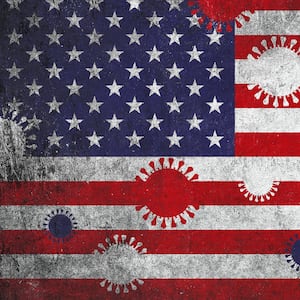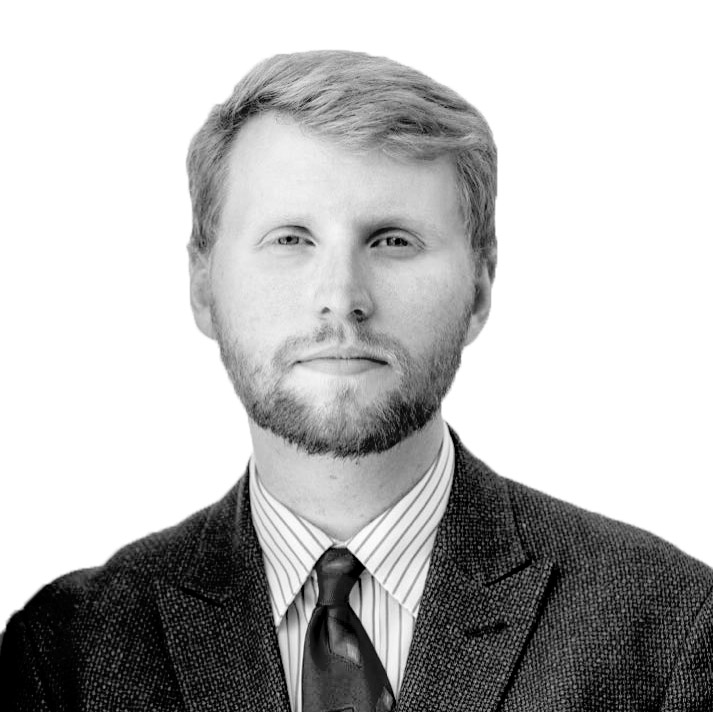As President Donald Trump prepared to return to the campaign trail amid the ongoing coronavirus pandemic, administration officials and several close advisers warned him of the dangers that could come with packing a venue full of his political supporters.
He was not dissuaded.
“He’s been [gently] reminded of the concerns,” said a senior administration official, regarding the potential for spreading the virus at large public gatherings. “The president said something like, ‘My team will make sure everyone is safe [at my rallies].’”
On Wednesday, Trump announced that he would be holding his first rally since the lockdown began in March—an event on Friday in Tulsa, Oklahoma, followed by ones in other states soon after. The rallies promise to be boisterous, celebratory affairs—already pitched by the campaign as the first chapter of a roaring Trump comeback. They also reflect the triumph of political interests over public health warnings—a development aided by state governors who’ve made similar calculations—and racial tensions that led to mass rallies. On Thursday, the Trump campaign’s official announcement of the Tulsa event came with a symbolic, chilling footnote: By attending the event, it read, those registering “agree not to hold Donald J. Trump for President, Inc.” and others liable for any potential COVID-19 infection.
“People have to decide what is most important to them: You can peacefully assemble and march in protests and wear a mask outdoors very safely. But people are also deciding in particular cases that justice is worth the risk,” said Andy Slavitt, former acting administrator of the Centers for Medicare and Medicaid Services under the Obama administration. “Likewise, if the rallies are not going to be indoors and not socially distant, Trump is saying, ‘My re-election is more important than public health.’ The virus is a way for people to demonstrate their values when a lot is at stake.”
For months, Trump had been pushing campaign and White House aides to find ways to get him back out on the trail, pining for the big, rowdy crowds that he sees as his political lifeblood and finds personally gratifying. Often, it came to the dismay of various advisers who were left debating how, exactly, to pull off a rally big enough to satisfy the boss’s cravings while also addressing a pandemic that has claimed more than 110,000 American lives.
At one point, as The Daily Beast reported, aides mapped out how to hold events at drive-in movie theaters so that attendees could stay in their cars and remain appropriately distanced. For weeks, many agreed that reduced crowd sizes—thousands instead of the tens of thousands—was in order, though they feared how the boss would react. Last month, several top Trump officials privately acknowledged to one another that if the future rally’s headcount wasn’t high enough, they would risk making the president “mad” and incurring his wrath, according to written communications reviewed by The Daily Beast.
At the senior level, ideas for balancing Trump’s wishes and the realities of COVID-19 were the topic of frequent deliberation. Among the proposals considered was the handing out of free Trump-Pence-branded masks to rally-goers, placing hand-sanitizer stations throughout the venue, booking outdoor spaces, imposing temperature checks for attendees upon entry, and keeping those attendees well-spaced, four people familiar with Team Trump’s internal deliberations said.
But according to two sources with knowledge of discussions that have occurred since last month, Trump has demanded that the crowd capacity be allowed to stay very close, or practically identical, to what it was during pre-pandemic levels. His political lieutenants have often said things like, “We’ll see what we can do,” but have sporadically reminded him that they could be forced to keep attendance down.
With states beginning to ease coronavirus guidelines, and with huge numbers gathering at street protests in dozens of cities and areas across the United States in the wake of the police killing of George Floyd, Trump appears to have gotten the cover he desired.
On Thursday, The New York Times reported that “Trump campaign officials are unlikely to put into place any social distancing measures for rally attendees, or require them to wear masks,” citing sources familiar with the decision-making process. The Times also reported that “Mr. Trump has made it clear he doesn’t want to speak in front of gatherings that look empty because of social distancing, or to look out on a sea of covered faces as he tries to project a positive message about the country returning to normal life and the economy roaring back.”
Neither the Trump campaign nor White House spokespeople provided comment for this story.
Trump’s push to hold rallies comes at a time when COVID-19 infections and hospitalizations are on the rise in many states (mainly in the south and southwest), including several where campaign events are planned. After Tulsa, stops are planned for Florida, Texas, and Arizona, the last of which is scheduled to host a Students for Trump event in Phoenix on June 23. For local leaders and health officials, the rallies are a source of anxiety.
“The CDC put forth criteria strongly discouraging large gatherings during COVID-19, especially in communities without a sustained decline in case numbers,” Phoenix Mayor Kate Gallego’s office said in an email. “Unfortunately, Arizona is on an upward trajectory for positive cases. During this pandemic, all decisions should be led by the guidance of medical professionals.”
The president’s relationship with the public health community has been tense, at times, during the pandemic. Trump has often been overly bullish about the ability to contain the pandemic, and dismissive of public health guidance. Among medical professionals, there has been concern that the president’s supporters may take his cues and not properly adopt preventive measures.
“Anytime you have groups of people coming together, there is a concern that the virus may have a chance to spread,” said George Monks, president of the Oklahoma State Medical Association. “However people protesting, people going to rallies, that’s kind of the cornerstone of freedom in our country. We just encourage people that if they do participate in a rally or a protest, number one that they’re peaceful, number two that they wear a mask and respect that physical distancing. The virus is not gone.”
It’s not the fact that Trump is coming that’s a problem, said Will Humble, the executive director of the Arizona Public Health Association, it’s how he wants to do it. The former director of the state’s department of health services worried that without the campaign taking precautions and attendees following public health guidelines, a rally could become “a super spreading event.”
“You could do things if you’re thoughtful about it,” said Humble, the former director of the state’s department of health services. “But if you’re not going to be thoughtful about it, if you’re not going to limit capacity, if you’re not going to have distancing, if you’re not going to have hand washing, if you’re not going to have masks, you’re not going to avoid the meet and greet stuff, if you’re not going to have a way for people to get into the facility and out without crowding and stuff at the exits, then you’re just jeopardizing the health of the people who are there, and their grandparents and their parents when they go home.”
Despite Trump’s insistence that he get back on the trail and host a jam-packed convention speech, members of his own coronavirus task force have raised questions internally about the impact such events could have on the spread of the virus. In recent calls with governors, recordings of which The Daily Beast obtained, Dr. Deborah Birx, the coordinator of the task force, raised the alarm about the increase in cases in a handful of states across the country, including California, Arizona, Utah, North Carolina, Alabama, Arkansas, Nebraska and Virginia. Birx said 55 percent of those new cases were a result of a specific outbreak and 38 percent were a result of community spread.
And according to a study put together by PolicyLab at Children’s Hospital of Philadelphia, a data set used by top coronavirus task force officials, shows that over the next four weeks cases are set to spike even more in states where Trump plans to hold rallies. For example, in Maricopa County, where Phoenix is located, cases numbers are predicted to spike by more than 1,500 by the July 4 holiday.
Dr. David Rubin, the director of PolicyLab at Children's Hospital of Philadelphia, said his team noted in their latest study that not all spikes are attributable to increased testing either.
“Don’t let people fool you,” Rubin said, noting that his team is tracking the virus’s movement up major highways and interpasses as states begin to reopen. “As these places open up, we’re now developing these zones of transmission that include more than just the metro areas because we’re moving around more.”









